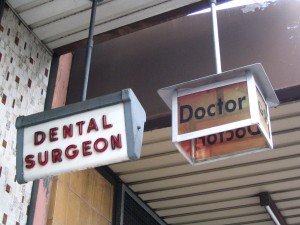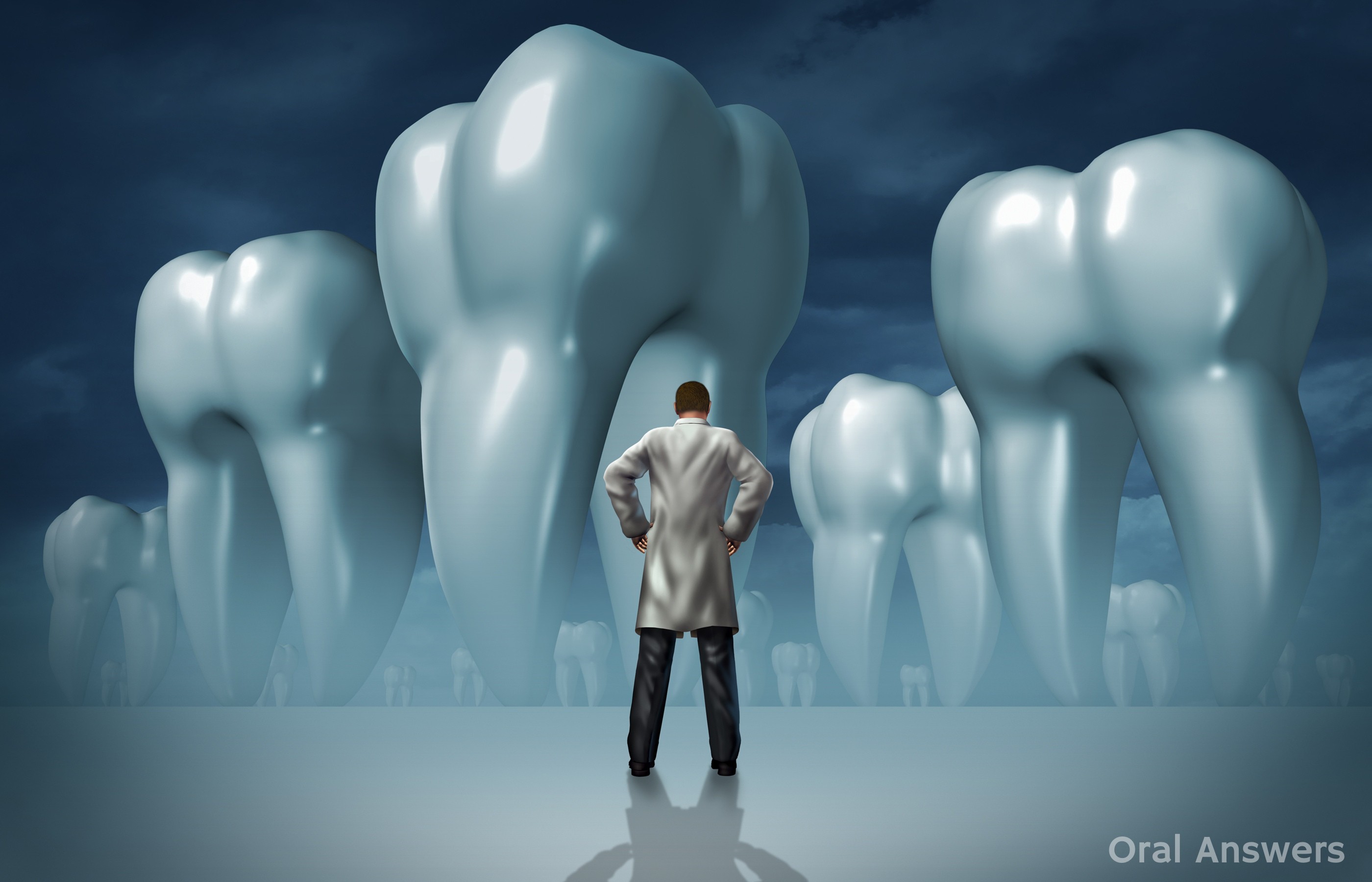When you go to your family dentist, chances are that you are visiting a general dentist. This is a dentist that has completed four years of postgraduate dental school and has received the dental degree of DMD or DDS. Upon graduation, I am planning to practice general dentistry.
 Some dentists choose to obtain two to six more years of education by entering a dental specialty.
Some dentists choose to obtain two to six more years of education by entering a dental specialty.
While general dentists do have a wide array of knowledge in all areas of clinical dentistry, specialists are focused on one specific niche inside of dentistry and often have more knowledge than general dentists in that specific area.
Thus, when a general dentist encounters a patient with a problem that is beyond his or her skill level to treat, the general dentist will refer their patient to a dental specialist.
The Nine Dental Specialties
Dental Public Health – Public health dentists focus on achieving optimal dental health for their communities. The concept of public health dentistry is that they are treating communities as a whole, rather than individuals as their patients. Public health dentists persuade communities to adopt better oral health policies, such as water fluoridation. There are a few public health dentists that work at my dental school. They write a lot of papers on how to improve dental health. They also teach us about the dental goals of federal programs such as Healthy People 2010 (now called Healthy People 2020.)
Endodontics – Many patients are referred to endodontists when they need a root canal. However, endodontists don’t just perform root canal treatments. They are concerened with the overall health of the dental pulp as well as the tissues that surround the tooth. I went to an endodontist to have a root canal treatment done on one of my upper molars. The tooth had some curved roots, and my dentist thought that the procedure deserved the attention of a specialist. The American Dental Association states that “[Endodontics’] study and practice encompass the basic and clinical sciences including biology of the normal pulp, the etiology, diagnosis, prevention and treatment of diseases and injuries of the pulp and associated periradicular conditions.”
Oral and Maxillofacial Pathology – Oral pathologists deal with all types of disease found in and around the oral cavity. If your dentist suspects that you have a disease, he or she might send out your radiographs and a biopsy of the suspected tissue to an oral pathologist.
Oral and Maxillofacial Radiology – This is the newest specialty and was adopted in 2003. Oral radiologists deal with the technique associated with taking radiographs and then diagnosing the radiographs that are made. They are experts in viewing radiographs and interpreting them. Their eyes are trained to find the slightest discrepancies from normal and diagnose abnormalities in the facial structures.
Oral and Maxillofacial Surgery – You might better know oral and maxillofacial surgeons as the dentists that normally remove wisdom teeth. However, oral and maxillofacial surgeons do so much more. They can place dental implants, surgically remove tumors in the facial area, perform reconstructive and cosmetic surgery of the face after you’ve been in a traumatic accident, as well as TMJ surgery.
Orthodontics and Dentofacial Orthopedics – Orthodontists help their patients obtain optimal occlusion. Occlusions is defined as the relationship of the teeth to one another. Orthodontists can correct crooked, misaligned teeth to give you an aesthetically pleasing smile.
Pediatric Dentistry – This specialty was formerly called pedodontics. Pediatric dentists provide specialized care for children through adolescence. When I volunteered at a clinci before coming to dental school, we had a pediatric dentist come in to treat the children. He was able to calm down many of the kids by telling them funny stories and using language that they would understand. Also, pediatric dentists are trained to recognize and treat dental problems that are specific to children.
Periodontics – Periodontists deal with the health of the structures around the tooth: the gingiva (gums) and bone. If you start developing gum disease, a periodontist can help you get back to having healthy gums. They can also perform gum surgery and gum grafts as well as place dental implants.
Prosthodontics – Prosthodontists make prosthetic (fake) teeth. They are specialists in making crowns, bridges, partial dentures, and dentures. Many general dentists do all of these procedures and refer the more difficult cases out to prosthodontists.
Do you have any comments or questions about dental specialist? Let us know in the comments section below!

Can regular family dentists do what the specialists can do? You say prosthodontics make crown and bridges but my regular dentist does that too and he is not a prosthodontist.
Hi Cheryl – Thanks for your comments! Family dentists (also called General Dentists) can do most everything that the specialists can do. The only difference is that the specialist has more training and they can deal with more complex cases.
For example, I’m planning on becoming a general dentist. As a general dentist, I can place dental implants. However, if there was a difficult case that I felt uncomfortable trying to treat by myself, I would refer the patient to a prosthodontist, oral surgeon and/or periodontist to help give that patient the best possible dental implant.
I had a very bad experience with a dentist, he did orthodonic work on my daughter and was very unprofessional. Along with that after 3 years of her having braces, and he refused to communicate with me about what his goal was with my daughter or what options we had when he was under her care. I did some research and found many, many complaints about him and that his license was suspended and he was on indefinite probation. I need to know how to I verify that he has a “Specialty” license to take on orthodonic work. I read The Illinois Dental Practice Act, and under the statutes there are many rules which he did not abide by, along with the fact and quote me if I am wrong, but does he or does he not need a “specialty” license to work as an orthodonist. I found some information on him and al of the listings only list that he is a general dentist, I cannot find a specialty license. How can I verify this? He has done some terrible things, along with abandoment with my daughter’s teeth.
I did get a second opinion on the work he did and it was not good. Please help!
Hi Diana – You can try this dentist license verification page. Click on the link under “Illinois” then click on “Dental Specialist” from the drop-down box and look for your daughter’s dentist.
I wrote an article about whether or not general dentists can practice orthodontics that you might find interesting. You can try asking him for some money back saying that the second opinion pointed to bad dental work on his part.
I hope that helps – Thanks for your comment, Diana. Let me know if you have any other questions.
Hi Tom,
i just started school for DA and i kind of went into this field without knowing anything about dentistry. So far so good but what iv also been told is that no one wants to stay a DA forever. If i wanted to continue my education in dentistry, what would you recommend? i dont want to be a dentist but i like more hands on and jump in to work with the dentist as much as i can. i dont what to be in the back cleaning or pushing papers.
Hi Sujey – Some people don’t like it, but I’ve met dental assistants that are very passionate about what they do and they make pretty good money. Many states have a tiered level of dental assisting and you can become a “Dental Assistant II” or an “Expanded Function Dental Assistant” where the dentist simply prepares the tooth and removes the decay and you can then do the filling. Good luck!
Comment: hi, am an architecture student, nd am designing a dental hospital 4 my project. I wanna knw more abt dentistry, its space relations (i mean depts dat shld nt b too far4rm each oda). Nd oda relivant spaces apart 4rm d specialties, in d hospital. Thanks!
Wow! Thank you that was written in such a way that anyone can understand it, simple and concise.
I went to a new dentist for annual exam, exray and teeth cleaning. He measured the spaces between my teeth and said I have to have “scalling and planning” of my teeth. I do not have dental insurance and he said it will costs up to $3,000. This is an hygentist not a periodontist. I don’t even like the way the Exray or clean my teeth. My mouth hurt for days after and I had a mouth sore. Now I am told they won’t give me an apt for a cleaning. What do you recommend?